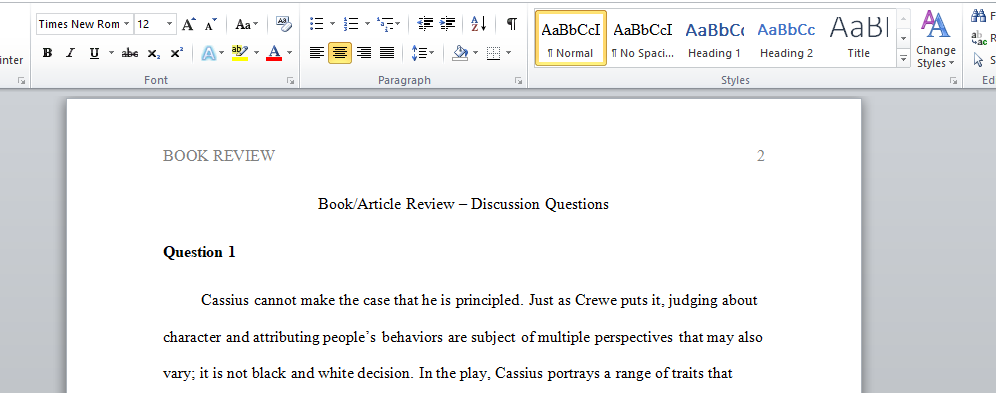Consider the excerpt from “Power Plays”.
Read articles and answer questions:
Consider the following excerpt from the Crewe reading:
“The play does not present characters or political attitudes for acceptance or rejection; instead it sets up a continuous flow and recoil of sympathy in the reader. Let me illustrate this as follows; if one is asked whether one prefers principled or unprincipled men in positions of responsibility, there can be no difficulty about the answer. One might as well be asked whether one prefers good to bad. But if we call the man of principle Brutus and the unprincipled one Cassius difficulties appear and multiply, and as the play develops our sympathy and judgment are in a continual state of flux. The choice is no longer between black and white, a fact not merely to be acknowledged, but lived, as Shakespeare makes us live it in the play. To say this is not to deny the necessity of choice, and naturally if we have to say who is the better man it will be Brutus. But we will at least know what is entailed in making such a choice.”
Can Cassius make the case that he is principled? Why or why not?
Consider the excerpt from “Power Plays”.
After the author dissect’s Antony’s speech, he makes the argument that while a man or woman can be rational, the masses cannot be. Do you agree with this statement? How does this relate to our takeaways on leadership?
Also, do you see Antony’s speech as effective? Sure, in the context of the movie and the play he turns the crowd, but is this believable? What are the strengths? The weaknesses, if any?
Answer preview:

Words:464
